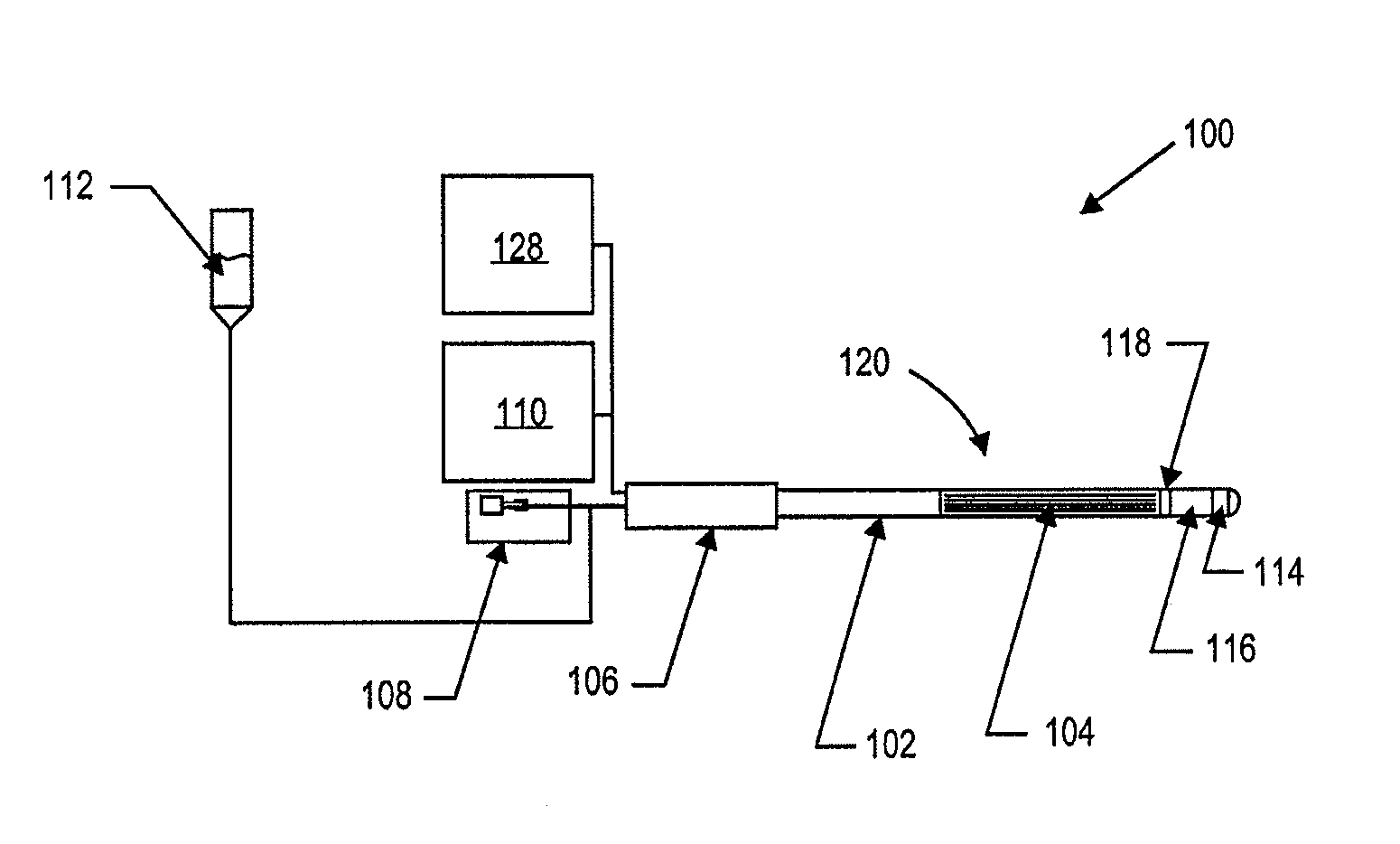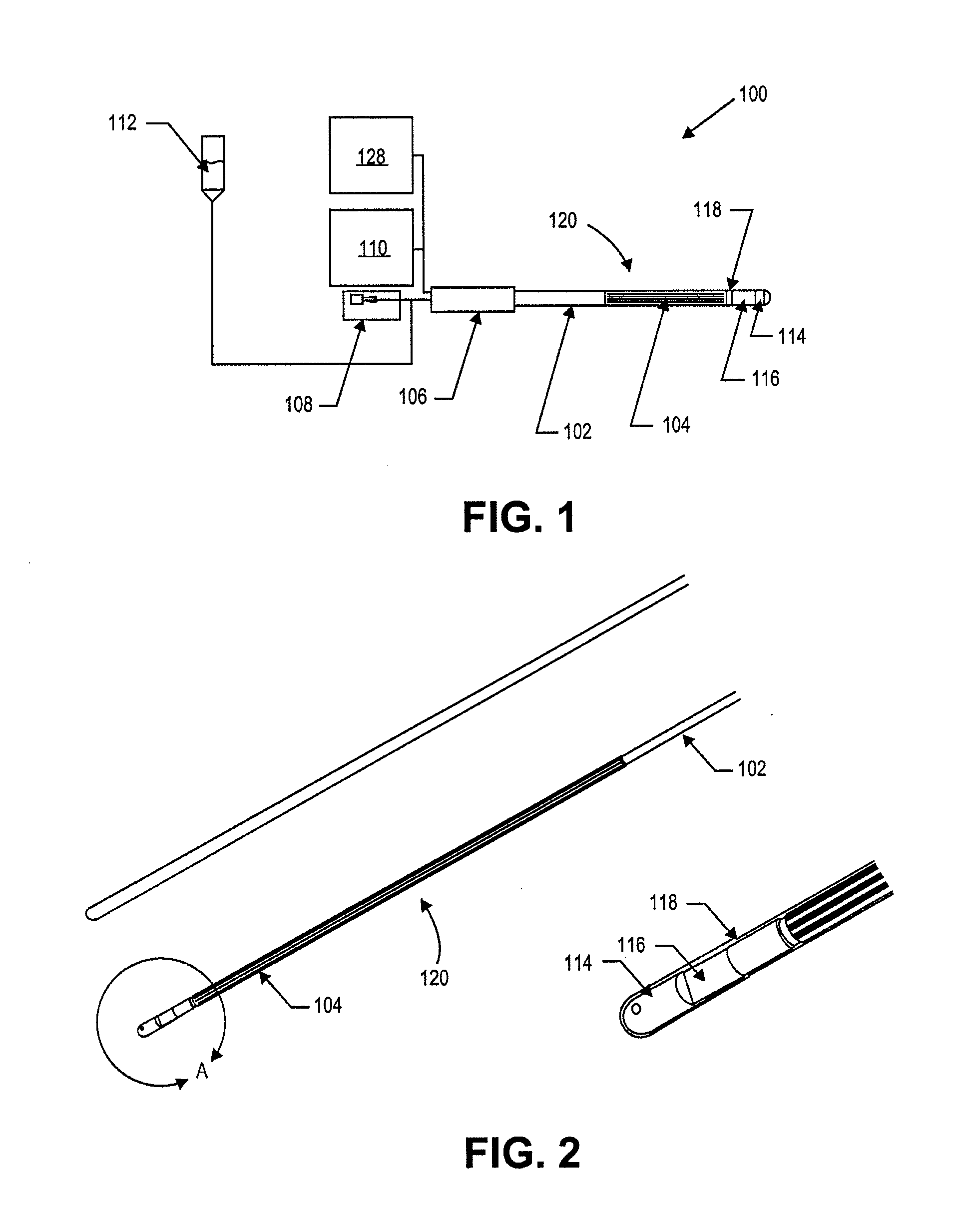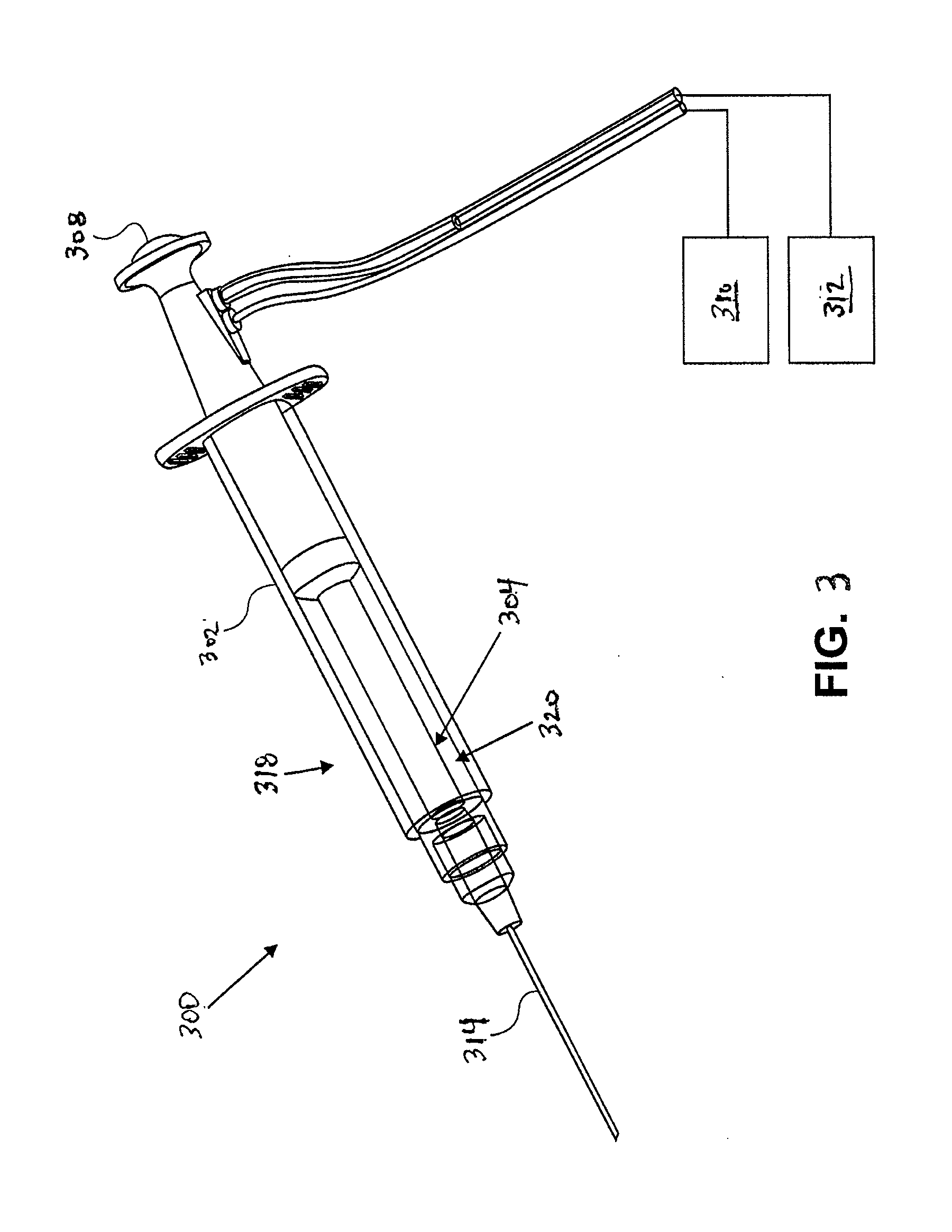Hot tip laser generated vapor vein therapy device
a technology of vapor veins and lasers, which is applied in the field of hot tip laser generated vapor vein therapy devices, can solve the problems of increasing strain and pressure on the lower vein sections, overlying tissues, and inability to close the vein, and achieves the effect of reducing the lumen of the vein
- Summary
- Abstract
- Description
- Claims
- Application Information
AI Technical Summary
Benefits of technology
Problems solved by technology
Method used
Image
Examples
Embodiment Construction
[0035]One embodiment of the invention provides a catheter-based vapor therapy system that generates vapor at a distal end. The distal tip of the catheter is small enough to fit within not only the GSV but also in smaller vessels within the patient's legs. For example, vapor generation catheters according to this embodiment may be made with diameters in the range of 4 Fr to 10 Fr., which is useful for treating a common range of veins and / or blood vessels, including the GSV and major tributaries emanating from it, since the catheter's diameter will easily fit within these vessels. However, in other embodiments, the catheters can be larger than 10 Fr or smaller than 4 Fr.
[0036]One aspect of vapor therapy systems according to this embodiment is the heat source at the distal end of the catheter that creates the liquid to vapor phase change, particularly the dimensions and efficiency of the heat source. In order to place the tip of the vapor catheter in a small lumen, such as a leg vein s...
PUM
 Login to View More
Login to View More Abstract
Description
Claims
Application Information
 Login to View More
Login to View More - R&D
- Intellectual Property
- Life Sciences
- Materials
- Tech Scout
- Unparalleled Data Quality
- Higher Quality Content
- 60% Fewer Hallucinations
Browse by: Latest US Patents, China's latest patents, Technical Efficacy Thesaurus, Application Domain, Technology Topic, Popular Technical Reports.
© 2025 PatSnap. All rights reserved.Legal|Privacy policy|Modern Slavery Act Transparency Statement|Sitemap|About US| Contact US: help@patsnap.com



